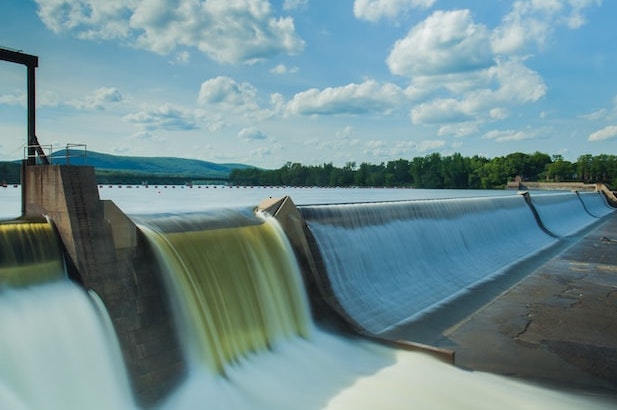
Renewable energy farming is a method of generating electricity using natural resources such as sunlight, wind, and water. This method of energy production is considered sustainable because it does not deplete finite resources like fossil fuels, and it also reduces greenhouse gas emissions that contribute to climate change.
Solar energy
Solar energy is the most common form of renewable energy used in farming. Photovoltaic (PV) systems, which convert sunlight into electricity, can be installed on farm buildings or as standalone systems on land that is not suitable for crop production. These systems can provide electricity for farm operations and can also feed excess energy back into the grid for a source of additional income.
Wind energy
Wind energy is another popular form of renewable energy used in farming. Wind turbines can be placed on farmland or in nearby areas, and they can generate electricity for farm operations or feed excess energy back into the grid. Wind turbines can be expensive to install, but they can provide a significant source of income for farmers over time.
Hydroelectric
Another form of renewable energy that can be used in farming is hydroelectric power. This is generated by harnessing the energy of moving water, such as from a river or stream. Hydroelectric systems can be installed on farms, and they can provide electricity for farm operations or feed excess energy back into the grid.
Renewable energy farming can provide farmers with a source of income, reduce their energy costs, and decrease their carbon footprint. Additionally, it can provide a long-term and sustainable source of energy for farm operations. Farmers interested in renewable energy farming should research the different options available, and consult with experts in the field to determine the best solution for their farm.
It is worth mentioning that, renewable energy farming also have a positive impact on the community, by being a source of clean energy, it can help reduce air and water pollution, and decrease dependence on fossil fuels.
Renewable energy farming is a smart and sustainable way for farmers to generate electricity and reduce their impact on the environment. By using solar, wind, and hydroelectric power, farmers can reduce their energy costs and even earn additional income by selling excess energy back to the grid. It is a sustainable investment that can benefit farmers in the long run by providing a sustainable source of energy while also contributing to a cleaner environment.
Investing in sustainability
Renewable energy farming is not only a smart and sustainable solution for farmers, but it also presents a unique opportunity for investors. Investing in renewable energy farming can provide a steady return on investment while also contributing to a cleaner, more sustainable future.
One way for investors to get involved in renewable energy farming is by investing in companies that specialize in the installation and maintenance of renewable energy systems on farms. These companies can provide turnkey solutions for farmers, including financing, design, installation, and ongoing maintenance. By investing in these companies, investors can share in the profits generated by the sale of excess energy to the grid.
Another way for investors to get involved in renewable energy farming is by investing in community solar projects. Community solar projects allow multiple individuals and organizations to invest in a shared solar installation, with the electricity generated being distributed among the investors. This can provide a lower-cost option for farmers who may not have the resources to install their own systems, while also allowing investors to share in the benefits of the project.
Investors can also invest in renewable energy farming through yieldcos, which are publicly traded companies that own and operate renewable energy assets. These companies pay dividends to shareholders based on the cash flow generated by the assets they own. Investing in yieldcos can provide a steady source of income for investors, as well as the opportunity to participate in the growth of the renewable energy market.
Renewable energy farming is a smart and sustainable solution for farmers, and it also presents a unique opportunity for investors. By investing in companies that specialize in the installation and maintenance of renewable energy systems on farms, community solar projects, or yieldcos, investors can share in the profits generated by the sale of excess energy to the grid, and help contribute to a cleaner, more sustainable future. Investing in renewable energy farming is not just a good financial decision, but also a responsible one. As the world is moving towards clean energy, investing in renewable energy farming can be a way to secure a sustainable future for all.







